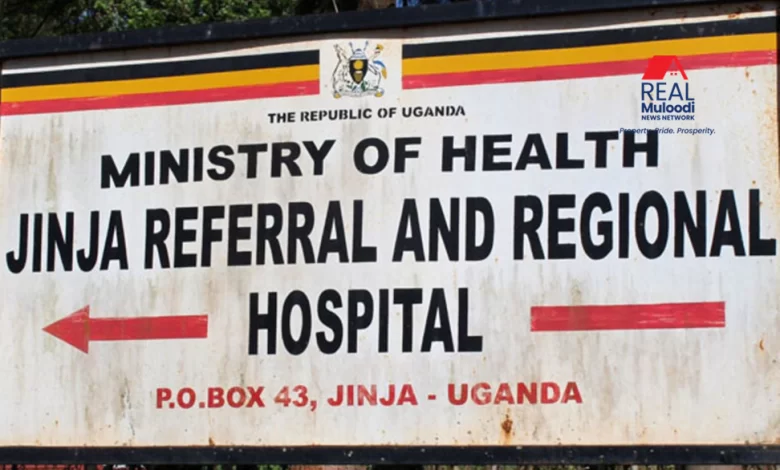Jinja hospital registers alarming maternal deaths
The disparity has alarmed both legislators and healthcare professionals, with many questioning how such a critical health facility could be grappling with this crisis.

Jinja regional referral hospital, one of Uganda’s major health centers, has come under scrutiny following a shocking report that revealed its maternal mortality rates, significantly surpassing national averages.
Parliament has now called for a thorough investigation into the hospital’s troubling maternal death statistics, a move that could have broader implications for Uganda’s healthcare system.
The Public Accounts Committee (PAC) report presented in Parliament disclosed that Jinja Hospital’s maternal mortality ratio stands at 777 deaths per 100,000 live births—more than four times higher than the national average of 189 per 100,000.
The disparity has alarmed both legislators and healthcare professionals, with many questioning how such a critical health facility could be grappling with this crisis.
Dr. Eunice Apio Otuko, the Oyam District Woman Representative, was one of the first to raise concerns during the debate, emphasizing the need for immediate action.
“This number is not just a statistic; these are mothers, sisters, and daughters who have died unnecessarily. We need to understand what’s happening at Jinja and why these figures are so high,” she remarked.
Dr. Apio’s appeal has pushed Parliament to focus on investigating the underlying causes of the maternal deaths at Jinja Hospital. She further stressed that an inquiry should also extend to other regional hospitals to determine whether this is an isolated issue or part of a larger systemic failure in Uganda’s healthcare delivery.
The PAC report has also shed light on gaps in service delivery across other referral hospitals and specialized health institutions like the Uganda Heart Institute and Uganda Cancer Institute.
Health facilities across the country are grappling with severe challenges—insufficient drug supplies, understaffing, and underfunding.
For example, Mubende Regional Referral Hospital reportedly went without essential drugs for six months, while Fort Portal Regional Referral Hospital faced a similar crisis for two months. This raises the question of whether maternal health is just one area where the system is faltering.
Parliamentarians are particularly concerned about the failure to maintain a consistent supply of medication, which has become a recurring issue.
“How are people supposed to survive without medicine?” questioned one MP, during the debate.
Deputy speaker of parliament, Thomas Tayebwa, voiced his support for Dr. Apio’s proposal for an investigation. “This issue is timely and must be dealt with as we begin the budget process. Understanding the gaps in our health sector will guide us on how to prioritize resources,” Tayebwa said.
He directed the Health Committee Chairperson to take immediate action and conduct a full-scale investigation into the maternal deaths and other related health service delivery issues.
One of the main concerns is the apparent ban on recruiting new health workers, which has left hospitals severely understaffed, according to many MPs. Without enough doctors, nurses, and midwives, the burden on existing health workers becomes unbearable, which can lead to errors and delays that ultimately cost lives.
“We need to lift the ban on recruitment and ensure that our hospitals are fully equipped to handle the influx of patients,” said Okupa, an MP calling for immediate reforms.
The Path Forward
The Health Committee has been tasked with expediting its inquiry into the alarming figures at Jinja Hospital, with the hope that their findings will guide future budget allocations and health sector policies. Uganda’s healthcare system has made strides in many areas, but the disparities highlighted by the PAC report, especially concerning maternal health, show that much work remains to be done.
Dr. Apio expressed hope that the investigation will serve as a turning point for Uganda’s health system. “We cannot continue to lose lives at this rate. This is a call to action, not just for Parliament, but for every stakeholder involved in Uganda’s healthcare delivery,” she concluded.
As Parliament moves toward budget discussions, the Jinja crisis has become a catalyst for wider conversations about healthcare reform. Uganda now faces the challenge of addressing the systemic failures in its referral hospitals, with the lives of countless women and future mothers hanging in the balance.







